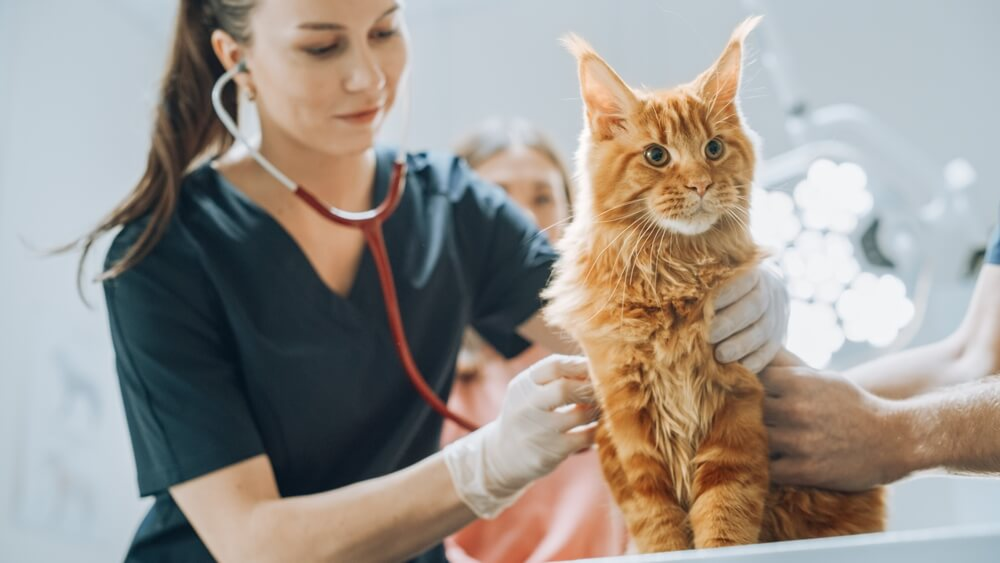Unique Demands of Veterinary Practice – How Disability Strikes
Veterinary professionals dedicate their careers to caring for animals, often in physically and emotionally demanding environments. The work can involve repetitive motion, standing for extended periods, lifting animals, and managing high-stress situations. Over time, this can take a toll on your physical and mental health.
Conditions such as Multiple Sclerosis, Rheumatoid Arthritis or lingering cognitive symptoms and fatigue following heart attack or cancer treatment can impair your ability to work at the same level as you did while you were healthy. The insurer needs to be provided with a detailed description of the physical and mental demands of your professional as well as the day to day duties which are impaired by your condition.
Whether you work in a clinic, manage your own practice, or provide mobile services, injury or illness may cause you to be unable to work and accessing your disability income or LTD coverage is essential. Your benefits will ensure that your financial responsibilities are covered so that you can focus on your health.
How Disability Benefits Support Veterinary Professionals Who Are Unable to Work
Long term disability payments will replace a portion of your income when you are no longer able to perform the duties of your occupation due to a medical condition. This financial support is especially important for for self-employed professionals with high income and substantial expenses associated with their practice. You may also have purchased business overhead insurance or business interruption insurance which will help you to defray some of your continuing expenses.
Common conditions that may lead veterinarians to apply for long-term disability include:
- Carpal tunnel syndrome
- Depression and anxiety
- Neck pain and back injuries
- Chronic fatigue or fibromyalgia
- Burnout or other psychological disorders
- Chronic illnesses such as Parkinson’s Disease, Multiple Sclerosis, Rheumatoid Arthritis or Psoriatic Arthritis
It is essential to provide the disability insurer with detailed information about your symptoms and functional restrictions as well as the specific impact that your illness has on your ability to perform your profession. The insurer knows little about the demands of veterinary practice and is likely to make assumptions about your occupational requirements in the absence of information.
What to Know About Long-Term Disability for Veterinarians
Disability insurance claims in Canada require detailed medical evidence, occupational information, and policy interpretation. If your claim has been denied, it does not mean you are out of options. In fact, many long term claims are denied initially due to incomplete information or differences in how “disability” is defined.
Our legal team will review your policy, medical records, and claim documentation to determine the best course of action. Whether you need help with the initial application or are looking to appeal a denial, we’re here to help veterinarians confidently apply for or appeal long term disability.
Important considerations for veterinarian disability claims involve:
- Policy wording matters. Private disability income policies will usually have an own occupation definition of disability. Group insurance LTD policies may only pay benefits if you are disability from your profession as a veterinarian during the first two years of benefits. After the first two years, you may have to prove you cannot perform any occupation for which you are suited by education, training and experience.
- Mental health claims can be more difficult to prove but are equally valid under all policies.
- High-income earners may face greater scrutiny due to the value of the claim.
- Disability claims are more difficult to process and often involve chronic conditions that fluctuate over time.
We understand how emotionally and financially taxing this process can be, especially if you’re also trying to keep a practice running or support a team of employees.
What Long-Term Disability Benefits Mean for Veterinarians
Receiving long term occupational disability support can make a significant difference in your quality of life, helping to maintain financial stability and reduce stress during a challenging time. Benefits typically cover a percentage of your income and may also include rehabilitation support or return-to-work assistance.
If your disability claim has been denied, our LTD insurance lawyers will step in to help you understand your rights and options. We’ll ensure your claim is fully supported with the right medical documentation and legal arguments.
Why Are Veterinarian Disability Claims More Challenging?
Due to the nature of their work and the income level involved, veterinarian disability claims are often more complex. Many high-income earners’ claims involve detailed medical evaluations and income documentation. Veterinarian disability claims can be subject to closer review, especially when they involve larger sums.
Here are a few reasons why your claim may face challenges:
- Your typical long-term disability policy may require proof that you can’t perform “any occupation,” not just your current veterinary role.
- Mental health conditions like depression, neck pain, and back issues are harder to prove with objective tests.
- Your insurer may require extensive documentation and assessments to determine how your illness affects your daily duties.
According to the Canadian Veterinary Medical Association, veterinarians face a higher risk of burnout and mental health issues compared to many other professionals. These legitimate conditions will require medical support and are unfortunately often denied after the application. An appeal or starting a lawsuit may be necessary to get the insurer to pay the claim.
When Is the Right Time for a Veterinarian to Apply for LTD Benefits?
If you’re struggling with chronic illness or recovering from an injury that interferes with your ability to work, it may be time to apply for long term disability. You should consider applying when:
- Your doctor has recommended you take an extended leave
- You are unable to perform essential duties of your job
- You’re no longer able to manage your practice effectively
- You’ve been out of work for several weeks and recovery isn’t progressing
It is difficult to make the decision to leave a profession that you’ve worked so hard to attain. As a result – many veterinarians will keep working until they are completely unable to function. If you’re unsure about the process and contemplating making a claim, our disability lawyers can help guide you through what to expect.
When to Contact Long-Term Disability Lawyers After a Denial
If you are a veterinarian whose long term disability benefits are denied, it’s important to act quickly. Insurance providers must provide a reason for the denial, but that doesn’t mean the decision is final. Many claims are denied due to incomplete documentation, unclear medical records, or a lack of understanding of the duties of the occupation.
You should contact an LTD lawyer as soon as:
- You receive a denial letter
- Your benefits are terminated unexpectedly
- You’re unsure how to respond to the insurer’s decision
- You’re being asked to return to work before you’re medically ready
Legal support during this time can make all the difference between walking away discouraged and winning your veterinarian long-term disability appeal.
How to File a Veterinarian Disability Claim
Completing a long term disability claim can feel overwhelming—especially while managing symptoms or medical treatment. Filing a complete and thorough claim from the start improves your chances of being approved for disability benefits.
Your disability claim will require you to complete the following forms:
- A physician’s statement of your diagnosis and limitations
- Records that document how your condition interferes with your ability to work
- Descriptions of your occupational duties as a veterinary employee or business owner
- A timeline of your symptoms, treatments, and attempts to return to work
Our team can help you prepare a comprehensive application that supports your disability insurance claims with clear, complete, and credible evidence.
Key Steps When Applying for Disability Benefits as a Veterinarian
Veterinarians are often high-functioning professionals who delay applying for benefits until absolutely necessary. However, early planning is crucial. Here are some important steps:
- Speak with your physician – Make sure your doctor supports your decision to stop working and agrees to document your limitations.
- Understand your policy – Disability income contracts and group long term disability policies include definitions, time limit and deadlines, eligibility requirements and exclusions.
- Gather job-related evidence – Document how your daily duties have become difficult or impossible to perform.
- Complete all forms completely – Many delays and denials occur when applications are submitted with missing or vague information.
- Keep a copy of everything – Maintain a file with every submission, update, and communication from your insurer.
Strong documentation is essential whether you’re preparing to make a long term disability claim or appeal a denial. If you’re unsure about any part of the process, our lawyers can help.
Why Hire a Lawyer for a Denied Veterinarian Disability Claim
If you’re a veterinarian whose disability income claim has been denied, hiring one of our lawyers who specializes in disability claims can make all the difference in securing the compensation you deserve.
How Disability Lawyers Can Help With Denied Veterinarian Claims
Disability lawyers can assist veterinarians facing denied claims by reviewing the denial, gathering medical evidence, and appealing decisions. We can also help navigate complex insurance claims in Canada and ensure veterinarians receive the payouts they deserve.
When You Need Legal Help With a Veterinarian Disability Claim
When a veterinarian’s claim for disability benefits is denied, legal help is crucial. An experienced lawyer can guide you through the process of appealing a decision and securing disability benefits. Don’t hesitate to request a free consultation through our online form.





